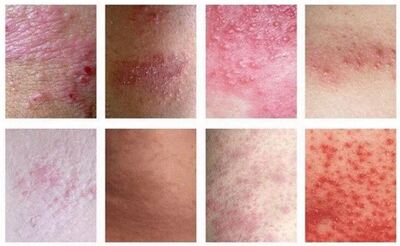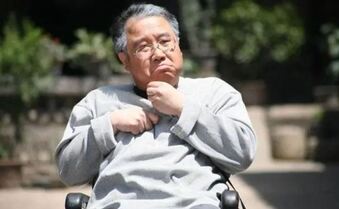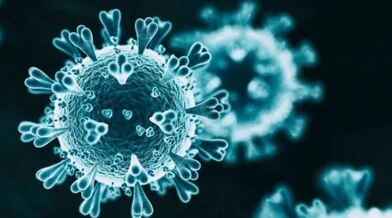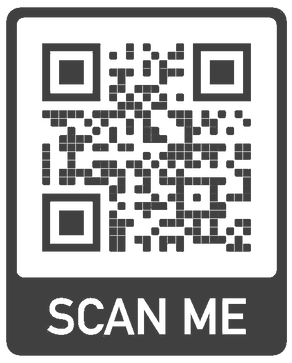 Eczema, also known as atopic dermatitis, is a chronic skin condition characterized by inflammation, dryness, and itchiness of the skin. While conventional treatments such as topical creams and oral medications can help manage eczema, acupuncture and Chinese Medicine may offer a complementary approach to addressing this condition. Acupuncture is a traditional Chinese medicine technique that involves inserting thin needles into specific points on the body. It is believed to work by promoting the flow of qi, or energy, throughout the body. Acupuncture has been used for centuries to treat a wide range of conditions, including skin conditions such as eczema.
One way that acupuncture may help manage eczema symptoms is by reducing inflammation. Acupuncture has been shown to have anti-inflammatory effects, which may be beneficial for individuals with eczema. Inflammation is a key factor in the development of eczema symptoms, including redness and itching. Acupuncture can help reduce inflammation by increasing blood flow to the affected area and promoting the release of anti-inflammatory substances in the body. Another way that acupuncture may help manage eczema symptoms is by reducing stress. Stress is a common trigger for eczema flare-ups, and acupuncture has been shown to have a calming effect on the body. Acupuncture can help reduce stress by promoting relaxation and reducing the release of stress hormones such as cortisol. Chinese herbal medicine is another aspect of traditional Chinese medicine that may be beneficial for managing eczema. Chinese herbal medicine involves using natural herbs and plant extracts to treat various conditions. In TCM theory, eczema is often seen as a manifestation of an internal imbalance, such as dampness or heat in the body. Chinese herbal medicine can be used to address these imbalances and promote healing of the skin. A review of multiple clinical trials found Chinese medicine to be effective in improving the size and severity of skin lesions and sleep quality in patients with eczema. In addition to acupuncture and Chinese herbal medicine, dietary therapy is another aspect of traditional Chinese medicine that may be helpful for managing eczema symptoms. In TCM theory, certain foods can exacerbate eczema symptoms, while others can help reduce inflammation and promote healing of the skin. A TCM physician may recommend dietary changes based on a patient's individual constitution and the nature of their condition. In general, a TCM diet for eczema may include foods that are nourishing to the skin and promote overall health. These foods may include leafy green vegetables, fruits, nuts, and seeds. A TCM practitioner may also recommend avoiding foods that are considered detrimental to skin health, such as processed foods, sugar, and dairy products. In summary, acupuncture and Chinese Medicine may offer a complementary approach to managing eczema symptoms. These modalities can be used in conjunction with conventional treatments to reduce inflammation, promote healing of the skin, and reduce stress. A TCM physician takes a personalized approach to treatment, considering each patient's individual constitution and the nature of their condition.  Stroke is a serious medical condition that occurs when blood flow to the brain is disrupted, leading to brain damage and potential disability. Acupuncture and Chinese Medicine can play an important role in managing stroke by helping to improve blood flow, reduce inflammation, and promote overall wellness. One of the primary goals of acupuncture and Chinese Medicine in the treatment of stroke is to improve blood flow to the brain. Acupuncture is believed to stimulate the body's natural healing processes, including the release of endorphins and other neurotransmitters that can help to dilate blood vessels and increase blood flow. Acupuncture can also help to reduce inflammation, which can contribute to further damage to the brain tissue.
Chinese Medicine emphasizes the importance of maintaining balance in the body, including the balance of energy or qi. Acupuncture and Chinese medicine can help to restore balance and promote overall health and wellbeing, which can help to reduce the risk of further health problems in stroke survivors. Research has shown that acupuncture and Chinese Medicine can be effective in the management of stroke. A study found that acupuncture combined with standard medical treatment improved functional recovery in stroke patients compared to standard medical treatment alone. While acupuncture and Chinese Medicine can be beneficial in the management of stroke, it is important to work with a qualified physician who is experienced in treating this condition. Acupuncture and Chinese Medicine are not a substitute for medical care, and stroke patients should always seek medical advice from a healthcare professional before beginning any new treatment. In addition, acupuncture and Chinese Medicine should be used as part of a comprehensive approach to stroke management that includes lifestyle modifications, such as regular exercise and a healthy diet, as well as conventional medical treatments, such as medication and physical therapy. In summary, acupuncture and Chinese Medicine can play an important role in the management of stroke by helping to improve blood flow, reduce inflammation, and promote overall wellness. These therapies can be used alongside conventional medical treatments to provide a more comprehensive approach to stroke management, and research has shown that they can be effective in improving functional recovery and reducing spasticity in stroke patients. While acupuncture and Chinese Medicine should be used under the guidance of a qualified physician, they offer a promising approach to managing stroke and improving outcomes for stroke survivors.  The COVID-19 pandemic has impacted millions of people worldwide, and while some individuals recover quickly from the virus, others experience long-term symptoms. This condition, commonly known as long COVID or post-acute sequelae of SARS-CoV-2 infection (PASC), can cause a range of symptoms, including fatigue, brain fog, shortness of breath, and muscle aches. Acupuncture and Chinese Medicine can play an essential role in managing long COVID symptoms by addressing the root cause of the condition and restoring balance in the body. Chinese Medicine and COVID-19
Chinese Medicine has been used for thousands of years to treat a variety of health conditions, and its principles can be applied to COVID-19 management. According to Chinese Medicine, COVID-19 is caused by a pathogenic heat syndrome that affects the lungs and other organs. This factor can cause a range of symptoms, including fever, cough, and fatigue. Acupuncture and Chinese Medicine can help manage long COVID by addressing this pathogenic factor and restoring balance in the body. Acupuncture and Long COVID Acupuncture is a technique used in Chinese Medicine that involves inserting fine needles into specific points on the body to stimulate healing. Acupuncture can help manage long COVID symptoms by addressing the underlying imbalances in the body that are causing the symptoms. For example, acupuncture can be used to promote the flow of Qi (vital energy) in the body, which can help alleviate fatigue and promote overall well-being. Acupuncture can also be used to stimulate the immune system, which can be helpful in managing long COVID symptoms. The immune system plays a critical role in fighting off infections, and acupuncture can help strengthen the immune system, making it more effective in fighting off pathogens like the SARS-CoV-2 virus. Research has shown that acupuncture can be effective in managing symptoms associated with COVID-19. Researchers found that acupuncture was effective in reducing fatigue, persistent malaise, chronic pain, and mood changes in patients after recovering from COVID-19. Another study found that acupuncture was effective in reducing inflammation in patients with COVID-19. Chinese Herbal Medicine and Long COVID In addition to acupuncture, Chinese Herbal Medicine can be used to manage long COVID symptoms. Chinese Herbal Medicine involves using natural herbs to treat a range of health conditions. Chinese herbs are chosen based on the individual's specific needs and are formulated to address the underlying imbalances in the body that are causing the symptoms. Chinese Herbal Medicine can be used to boost the immune system, alleviate fatigue, and improve lung function, all of which can be helpful in managing long COVID symptoms. For example, Astragalus and Ginseng have been shown to boost the immune system and improve lung function,, Ginkgo Biloba and Turmeric can help improve cognitive function, and Angelica and White Willow Bark can help alleviate muscle aches and pain. In summary, acupuncture and Chinese Medicine can play an essential role in managing long COVID symptoms by addressing the root cause of the condition and restoring balance in the body. Acupuncture can help alleviate fatigue, promote overall well-being, and stimulate the immune system, while Chinese Medicine can be used to boost the immune system, improve lung function, and alleviate other symptoms associated with long COVID. It is important to work with a qualified TCM physician when using acupuncture and Chinese Medicine to manage long COVID symptoms. The physician can evaluate the individual's specific needs and create a customized treatment plan that addresses their specific health concerns. By taking a holistic approach to long COVID management, acupuncture and Chinese Medicine can help individuals recover from the virus and improve their overall health and well-being.
Traditional Chinese Medicine (TCM) offers a holistic approach to healthcare and has been used for thousands of years to treat a wide range of conditions. TCM includes various modalities such as acupuncture, herbal medicine, dietary therapy, and meditation. In recent years, acupuncture and Chinese Medicine have gained popularity as alternative treatments for dementia.
Acupuncture is a form of TCM that involves the insertion of fine needles into specific points on the body. According to TCM theory, these points are located along meridians or energy pathways that run throughout the body. By stimulating these points, acupuncture can help restore balance and promote healing. Studies have shown that acupuncture can be effective in treating dementia symptoms. Acupuncture has been found to improve cognitive function, memory, and behavioral symptoms such as depression and anxiety. It is believed that acupuncture works by increasing blood flow to the brain, promoting the release of neurotransmitters, and reducing inflammation. In addition to acupuncture, Chinese herbal medicine can also be effective in managing dementia symptoms. Chinese herbal medicine involves the use of natural herbs and plant extracts to treat various conditions. In TCM theory, herbs are classified according to their properties such as hot or cold, and their effects on the body. Studies have shown that Chinese herbal medicine can improve cognitive function, memory, and behavior in patients with dementia. One study found that a herbal medicine was more effective than western medication alone in treating dementia symptoms. Dietary therapy is another aspect of TCM that can be beneficial for managing dementia symptoms. In TCM theory, diet plays an important role in maintaining health and preventing disease. A TCM practitioner may recommend dietary changes based on a patient's individual constitution and the nature of their condition. In general, a TCM diet for dementia may include foods that are nourishing to the brain and promote circulation. These foods may include nuts, seeds, whole grains, leafy greens, and fish. A TCM physician may also recommend avoiding foods that are considered detrimental to brain health, such as processed foods and sugar. In addition to acupuncture, herbal medicine, and dietary therapy, TCM also includes meditation and other mind-body practices. These practices can help reduce stress and promote relaxation, which can be beneficial for managing dementia symptoms. One study found that a mindfulness-based intervention improved cognitive function and quality of life in patients with early-stage dementia. The intervention included meditation, breathing exercises, and other mindfulness practices. Another study found that a Tai Chi program improved cognitive function and reduced behavioral symptoms in patients with Alzheimer's disease. In conclusion, acupuncture and Chinese Medicine offer a holistic approach to managing dementia symptoms. These modalities can be used alone or in combination with conventional treatments to improve cognitive function, memory, and behavior. TCM practitioners take a personalized approach to treatment, considering each patient's individual constitution and the nature of their condition. |
About UsAt Singeast TCM, we provide comprehensive diagnosis and personalised TCM treatment services at the convenience of your home.
Contact UsTo make a home visit appointment, reach us by the phone number or QR code below.
Archives
May 2024
ALL RIGHTS RESERVED © SINGEAST TCM
|




 RSS Feed
RSS Feed
